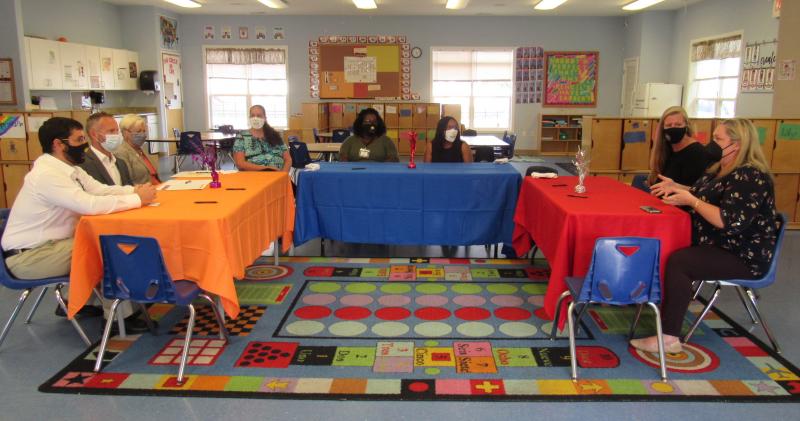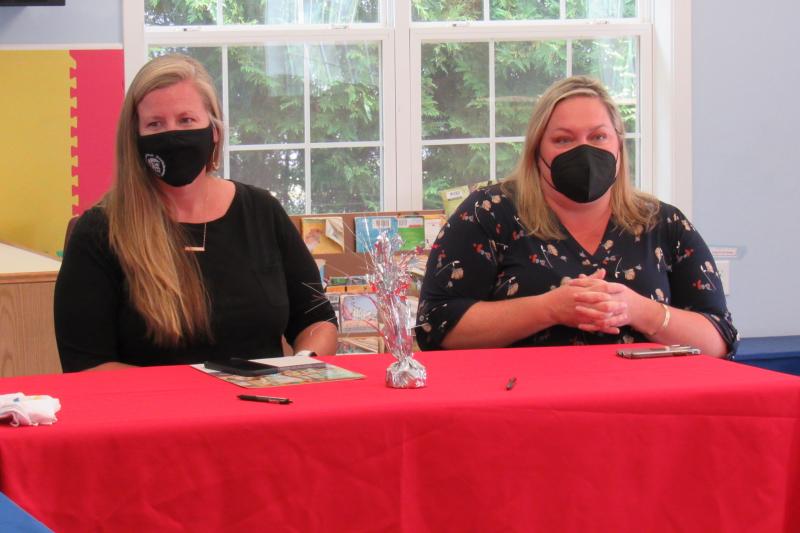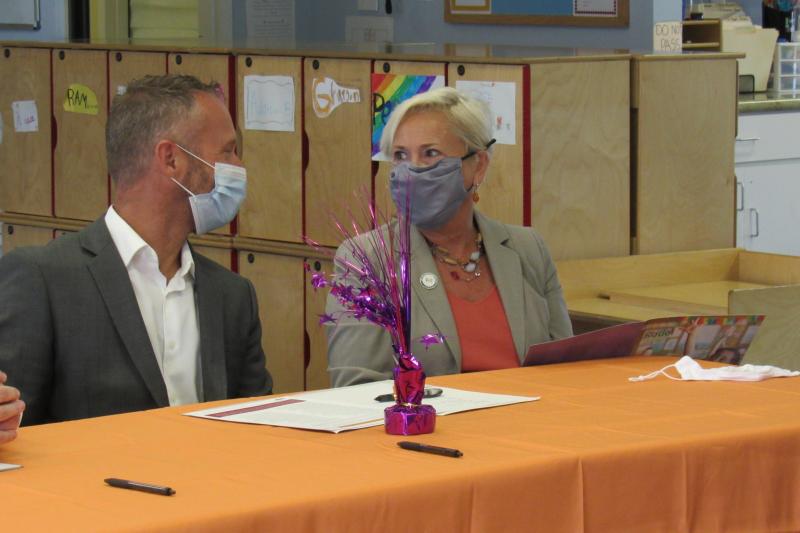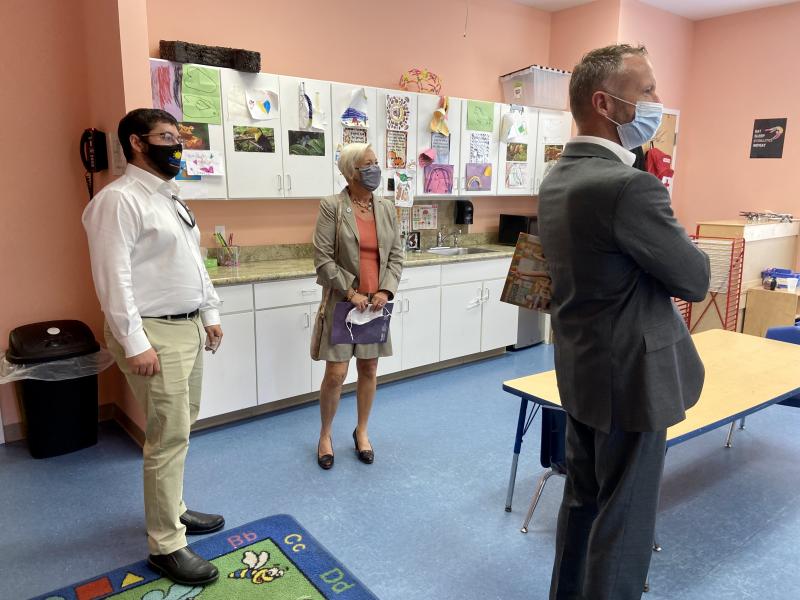Groups push for early childhood education funding

An employee shortage combined with a lack of funding is causing a crisis in early childhood education and care, a group of educators told state and local leaders at Beach Babies Child Care in Lewes Sept. 22.
“Investing in the workforce is the No. 1 way that we can quickly impact child care,” said Educational Enrichment Center owner and CFO Jamie Lynn Schneider, who is also president of Delaware Association for the Education of Young Children.
“This is a crisis that existed long before COVID,” Schneider said. “We’ve been talking about workforce shortages for almost a decade, if not longer, and we've been talking about increasing the infrastructure dollars and financing of child care to actually be able to sustain affordable care for all children.”
Structural change needs to happen on a statewide level, Schneider told the Office of Lieutenant Governor Chief of Staff Keith A. Warren and Rep. Ruth Briggs King, R-Georgetown, during a roundtable discussion.
Early child care costs essentially the same as college, Schneider said, and almost all of Delaware’s early child care centers are reporting workforce shortages.
Beach Babies Child Care owner and President Sean Toner said his centers offer bonuses and benefits, but they can’t compete with the outlets or fast food restaurants, which are paying $15 an hour to start. Many of his teachers work two jobs, Toner said.
Profit margins for his centers are already very small, Toner said. In 2019, the cost per child per day was $37.75, while the center brought in only $40 per day per child. When COVID hit, the cost per child per day jumped to $90 a day, he said.
Beach Babies Child Care Administrator Gina Ling said she loses teachers to public schools, which are state-funded and pay more.
“Money is the most driving factor, because you can work at Dunkin Donuts for $18 an hour and not have any experience or education, or be required to become qualified,” Ling said.
A high school apprentice program could graduate qualified teachers directly out of school, Ling said, and scholarship programs are needed to help teachers increase their education.
“We’re held to such high standards, with zero funding a lot of times to keep to those standards,” Schneider said.
Delaware child care centers received $200 million in funding during COVID through the CARES Act, Schneider said, which needs to be an investment every year, not just in the middle of a pandemic. A quarter of a billion dollars is needed to equal funding in the K-12 education system, she said, so children from low-income families get the same care as others who can afford it.
“We found out who’s truly essential,” she said. “We need food service, we need medical, and it's not just doctors and nurses. It's truck drivers, it's who's taking the laundry, and those are the people that aren't making enough to afford child care.”
Schneider said her center doesn't take Purchase of Care because it doesn't cover enough costs. Delaware’s POC program is a subsidy that supports early childhood and after-school education for low-income families.
Schneider said she can’t afford to pay employees $15 an hour and provide benefits if the reimbursement rate is 30 percent, even when that is subsidized with private-pay families. Children whose parents can afford high-quality early childhood education enter kindergarten significantly more ready, Schneider said.
“Right now, we're only at 185 percent of the federal poverty line, and we could increase that to catch more of those working poor families because that’s what we're truly dealing with,” Schneider said. “If you can’t afford child care, somebody stays home because $40,000 a year is unreasonable; $24,000 a year is unreasonable. If you have two kids, you're looking at $24,000 a year [in child care costs], so if you're making $40,000 and spending $24,000, what's the point?”
This is an equity issue, Schneider said.
“Child care deserts have higher rates of crime, higher rates of juvenile delinquency, higher rates of juvenile detention and higher dropout rates,” she said.


















































